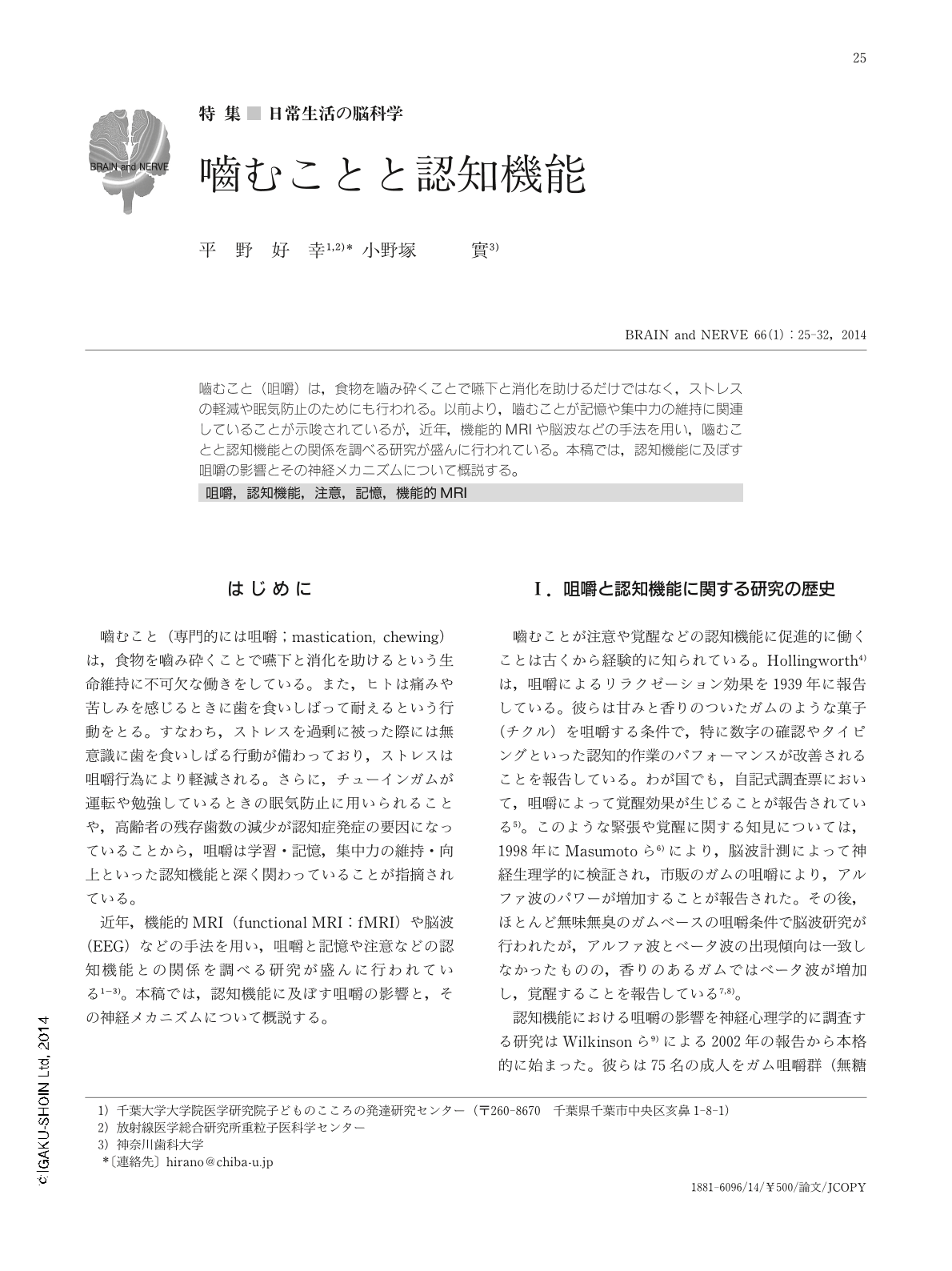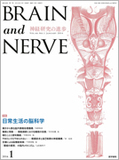Japanese
English
- 有料閲覧
- Abstract 文献概要
- 1ページ目 Look Inside
- 参考文献 Reference
嚙むこと(咀嚼)は,食物を嚙み砕くことで嚥下と消化を助けるだけではなく,ストレスの軽減や眠気防止のためにも行われる。以前より,嚙むことが記憶や集中力の維持に関連していることが示唆されているが,近年,機能的MRIや脳波などの手法を用い,嚙むことと認知機能との関係を調べる研究が盛んに行われている。本稿では,認知機能に及ぼす咀嚼の影響とその神経メカニズムについて概説する。
Abstract
Chewing does not only crush food to aid swallowing and digestion; it also helps to relieve stress and regulate cognitive functions, including alertness and executive function. It is well known that chewing gum is used for sleepiness prevention during work, learning, and driving. In addition, it has been shown in the elderly that a decrease in the number of residual teeth is related to dementia onset. These findings suggest a link between chewing and maintaining memory and attention. Recently, many studies regarding the effects of chewing on memory and attention were conducted using functional magnetic resonance imaging (fMRI) and electroencephalography (EEG). When a working memory task was used, the middle frontal gyrus in the dorsolateral prefrontal cortex showed greater activation in addition to producing higher alertness after chewing. Furthermore, using an attentional network test, reaction time shortened, and the anterior cingulate cortex and left frontal gyrus were both activated for the executive network. From these results, it is suggested that chewing elevates alertness, consequently leading to improvements in cognitive performance. In this review, we introduce findings concerning the effects of chewing on cognitive performance, and discuss the neuronal mechanisms underlying these effects.

Copyright © 2014, Igaku-Shoin Ltd. All rights reserved.


